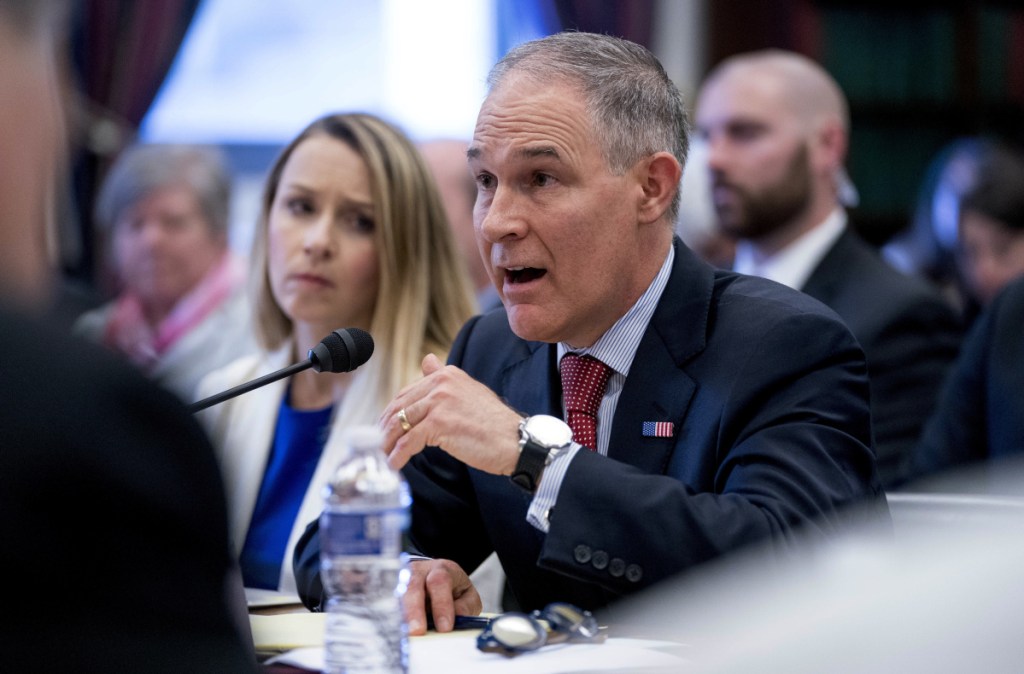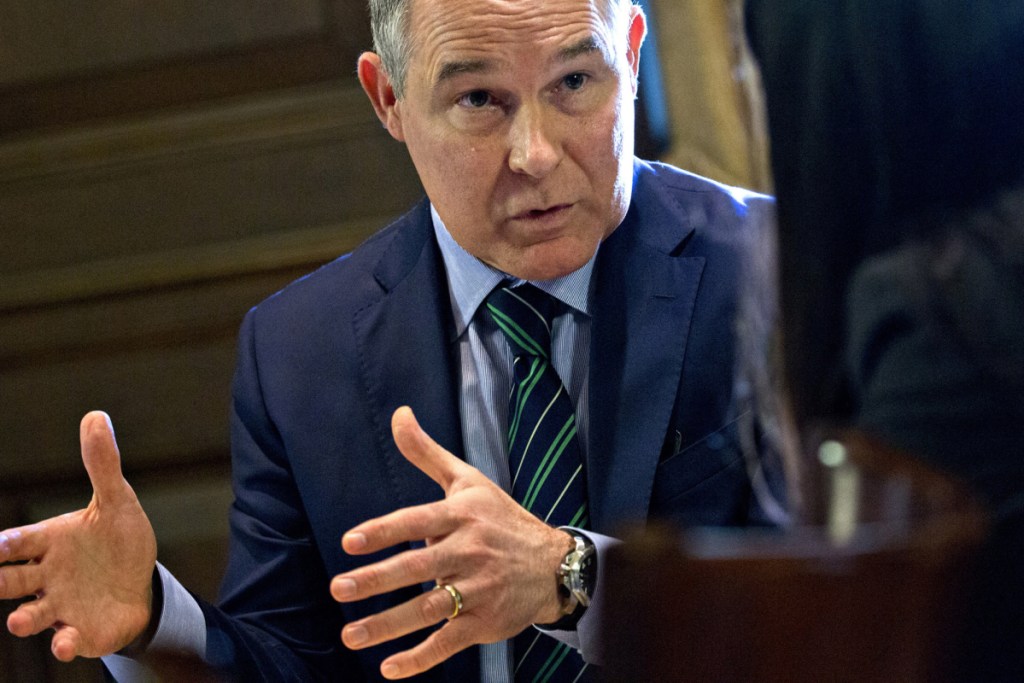WASHINGTON — Environmental Protection Agency chief Scott Pruitt on Thursday announced a major shift in enforcement of the landmark Clean Air Act to include feedback from state and local governments and others on the economic impact of federal pollution limits.
The initiative sets the stage for potential legal battles over how the United States enforces the 48-year-old law combating air pollution. Federal law and U.S. Supreme Court decisions require the EPA to focus on public health – not costs – in setting limits for smog, soot and other pollutants under the Clean Air Act.
Pruitt said the overhaul was part of his drive to give states and local governments more say in environmental decisions.
But a former chairman of EPA science advisory committees called it worrisome. “The Clean Air Act does not call for a balancing of benefits and costs” in setting federal limits for pollutants, said M. Granger Morgan, who led EPA advisory panels under Republican and Democratic administrations. “It calls for protecting the health of Americans.”
Under the Clean Air Act, the EPA and its administrators are charged with regularly reviewing the allowable limits for certain pollutants. The maximum levels for smog would be the first to come up for review, by October 2020, under the new procedure, the EPA said.
Under the changes announced by Pruitt, EPA will ask its advisory committees to consider and advise Pruitt on how enforcement affects the economy, health and welfare, energy and society, and will seek input from state and local government, Indian tribes and others on the pollution limits.
“The principles laid out in this memorandum will reform the process for setting national air quality standards in a manner consistent with cooperative federalism and the rule of law,” Pruitt said in a statement.
Copy the Story LinkSend questions/comments to the editors.




Success. Please wait for the page to reload. If the page does not reload within 5 seconds, please refresh the page.
Enter your email and password to access comments.
Hi, to comment on stories you must . This profile is in addition to your subscription and website login.
Already have a commenting profile? .
Invalid username/password.
Please check your email to confirm and complete your registration.
Only subscribers are eligible to post comments. Please subscribe or login first for digital access. Here’s why.
Use the form below to reset your password. When you've submitted your account email, we will send an email with a reset code.